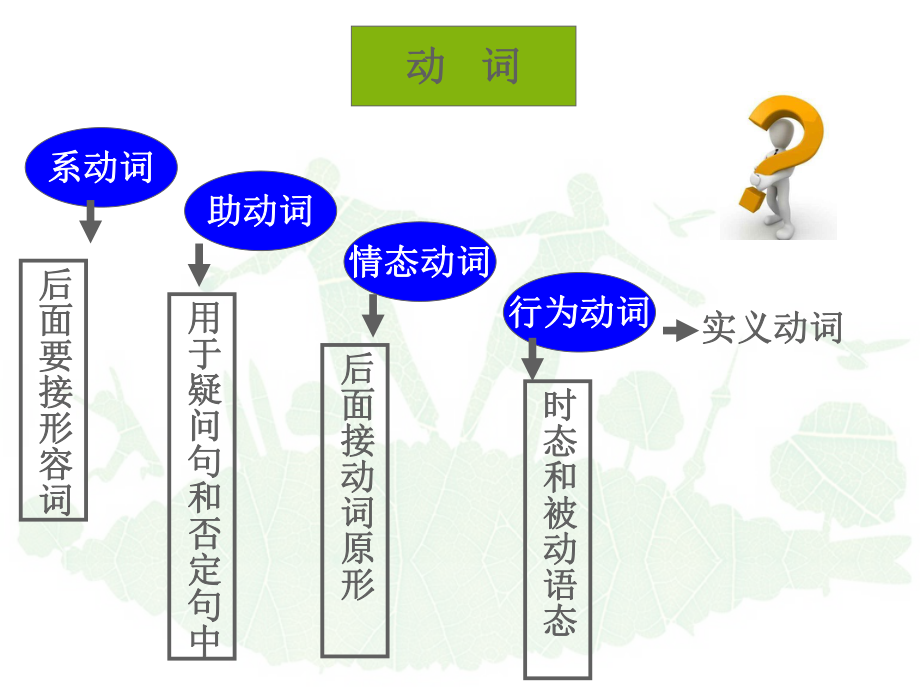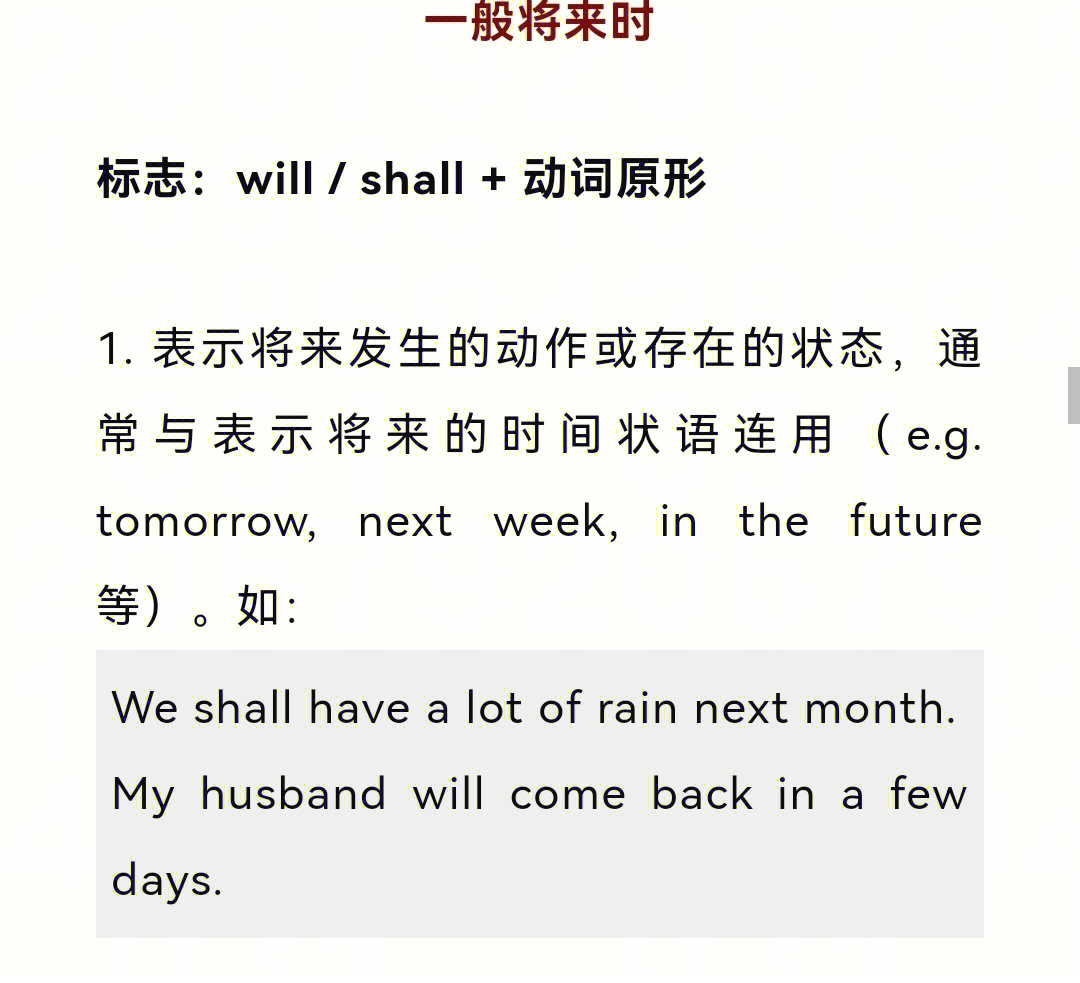距离2020年高考,仅剩43天,为助力广大备战考生,小维准备了20组高频近义词辨析,同学们抓紧学习吧。
1、accept;receive
accept:强调主观意愿决定“接受、收受”。
receive:表示“收到”别人给予(或邮寄、送达)的东西快速同义词,不含收件人是否愿意接受之义。
He asked me to marry him and I accepted.
他向我求婚,我答应了。
I received a phone call from your mother.
我接到你妈妈打来的一个电话。
2、matter;affair;event
matter:通常指客观存在的或有待处理的问题,常用于“a matter of”结构中。
affair:用于描述严肃认真的公共或政治“事务”;也可描述与个人生活密切相关的“小事”。
event:通常指具有很大影响、意义大的事件或运动会的比赛项目。
I always consulted him on matters of policy.
我总是向他咨询一些政策问题。
My family is more important to me than political affairs and personal ambition.
我的家庭对我来说比政治事务和个人抱负更为重要。
The election was the main event of 2008.
那次选举是2008年的重大事件。
3、advise;persuade
advise:表示“劝告、建议”,可后接双宾语或宾语加补语的复合结构,补语部分可以是动词不定式短语或其他结构。
persuade:不仅有劝告之义,还有使对方接受劝告,即有劝告加说服两重意义,且重点在后者。
Police are advising people to stay at home.
警方告诫民众要留在家里。
They advise that a passport be carried with you at all times.
他们建议护照要随时带在身边。
I knew I should study, but he persuaded me to go to the movies.
我知道我该学习快速同义词,但他说服了我去看电影。
4、almost;nearly
二者都是副词,在肯定句中常可换用。
almost:可与never, no, none, nothing, nobody, nowhere, too, more than 等连用,但 nearly 不可。
nearly:可与not 连用,但 almost 不可。
not nearly:意为“一点也不”、“远非”。
Almost nothing was done to improve the situation.
几乎没有采取什么措施来改善局势。
We’ve save some money, but it’s not nearly enough.
我们存了一点钱,不过还远远不够。
5、appear;look;seem
三者都有“看起来”之意。
appear:根据事物的表面现象作出判断,可能与事实不符。
look:通过视觉印象做出的判断。
seem:从某种迹象或有一定根据作出判断,接近事实的可能性较大。
She appeared to be in her late thirties.
看样子她快四十岁了。
That book looks interesting.
那本书好像很有趣。
There seems to have been a mistake — my name isn’t on the list.
好像弄错了,名单上面没有我的名字。
6、assist;help;aid
assist:指帮助者在援助过程中只起辅助作用,事情主要由被帮助者来做。
help:最普通用词。指一般性的或迫切需要的帮助,侧重积极地为他人提供物质、精神或其他方面的帮助。
aid:侧重强者对急需帮助的弱者的帮助。
We are looking for people who would be willing to assist in the group’s work.
我们正寻找愿意协助该团体工作的人。
He always helps with the housework.
他总是帮着做家务。
China never hesitates to aid those weak and small countries.
中国总是毫不犹豫的帮助弱小国家。
7、beat;hit;strike
beat:指用手或物等连续地打、敲击,如殴打或体罚,敲鼓、桌子等,还可指心脏跳动、打拍子和雨水的冲击。
hit:强调打中或击中这一结果,或强调敲打、打击对象的某一点,只作及物动词用。
strike:指用力地“打击”,表示短暂的动作,含有急速的或突然的一次性的殴打、打击或敲击;还可表示敲钟、报时。
He could feel his heart beating fast.
他能感到他的心跳快。
One of the stones hit the window.
有一块石头打中了窗户。
The clock struck nine.
钟敲了9下。
8、besides;except;except for
besides:是“除…之外 (还) 有”的意思。
except:作“除…之外”时常表示从整体中剔除一部分的意思,且剔除的内容与主语往往是同一类的。
except for:作“除…之外”时常表示从整体中剔除一部分的意思,且剔除的内容与主语往往不是同一类的。
We work every day except Sunday.
我们除星期天外每天都工作。
I had nothing on exceptfor my socks.
我除了短袜什么都还没穿。
We have lots of things in common besides music.
除了音乐,我们还有很多共通点。
9、cause;reason
cause:多指导致某事发生的“起因”,常用cause of 结构。
reason:多指做某事或解释某事的“理由”、“借口”。常用 reason for, reason why 结构。
Unemployment is a major cause of poverty.
失业是贫困的主要原因。
I’d like to know the reason why you’re so late.
我想知道你为什么迟到那么长时间。
10、cost;spend;pay;take
cost:主语是某物。用于sth. cost (sb.) some money
spend:主语通常某人。用于(sb)spend some money/some time on sth.或(sb) spend some money/some time (in) doing sth.
pay:主语通常是人,为“付费、偿还”之意。用于sb. pays some money for sth或pay sb. (somemoney for sth)
take:主语通常为形式主语“it”或物。用于It takes/took sb.some time to do sth=Sth.takessb.some time.
Her parents paid for her to go to Canada.
她父母出钱送她去加拿大。
Tickets cost ten dollars each.
每张票价为10元。
It took her three hours to repair her bike.
她花了三个小时修理自行车。
I’ve spent all my money already.

我已经把我的钱全都花完了。
11、damage;destroy;ruin
damage:通常指部分性的损坏,往往指价值、用途降低或外表损坏等;或表示可以修复的破坏。
destroy:指彻底的毁坏、毁掉或毁灭,往往无法或很难修复。
ruin:强调“毁坏”,使美好的事物失去优良的特性或特征,不能恢复。
Smoking seriously damages your health.
吸烟严重损害人体健康。
The building was completely destroyed by fire.
这栋建筑物被大火彻底焚毁了。
My new shoes got ruined in the mud.
我的新鞋被泥浆给糟蹋了。
12、desire;wish;want
desire:较正式,可代替 wish 和 want,强调主观愿望的热切,有“渴盼”的意思。
wish:一般用于难以实现或不可能实现的愿望,强调主观愿望,有“希望、愿、想”之意。
want:多用于口语和普通场合,有“想、要、需要”之意。
We all desire health and happiness.
我们都渴望健康和幸福。
I wish I was taller.
我要是个子高一些就好了。
Do you want some more tea?
你再要点儿茶吗?
13、divide;separate
divide:指将一个整体分为若干部分。其后常接介词 into。
separate:指将混在一起的事物按不同类别分开或把连在一起的东西分隔开。其后常接介词 from。
The world is divided into seven continents.
世界被分成七大洲。
We’d better separate the good ones from the bad ones.
我们最好把好的和坏的分开。
14、happen;take place
happen:主要用于偶然或突发性事件,多指意外事故、不幸的事。
take place:主要指按计划进行或发生,可指发生好事或不好的事。
We cannot say for sure what will happen.
我们无法确定会发生什么事。
This year’s event will take place on June 19th, a week earlier than usual.
今年的活动将于6月19日举行,比往年提前一周。
15、lend;borrow
lend:指借出,常与to连用。
borrow:指借入,常与from连用。
I borrowed the DVD off my brother.
我从我哥哥那里借了这张DVD。
I’ve lent the car to a friend.
我把车借给了一位朋友。
16、look;see;watch
look:通常表示主动地、有意识地“看”,强调看的行为。
see:强调“看”的结果,通常译成“看见”、“看到”。
watch:表示注意观看,留心整个过程,通常译成“观看”、“注视”。
I saw you put the key in your pocket.
我见你把钥匙放进口袋里。
She looked at me and smiled.
她看了看我,笑了。
They are watching a football game.
他们正在观看足球比赛。
17、scan;skim; skip
scan:指通过快速阅读查找所需的某一特定信息,意为“查读”。
skim:指通过快速阅读找到文章的中心思想,意为“略读”。
skip:指跳过即将阅读的某一部分内容,意为“跳读”。
He scanned the newspaper to find his name.
他快速浏览报纸,寻找自己的名字。
The Chinese teacher often tells us to skim the passage to find the main idea of the passage.
语文老师常让我们略读文章寻找主旨大意。
Skip the first passage and start on Page.
跳过第一篇文章从第15页开始看。
18、provide; offer; supply
provide:指有远见,为应付意外、紧急情况等作好充分准备而“供给、提供”,常用provide sth for sb或provide sb with sth结构。

offer:侧重表示“愿意给予”,常用offer sb sth或offer to do sth结构。
supply:通常指定期“供应”,强调替代或补充所需物品,常用supply sb with sth或supply sth to sb结构。
The Red Cross provides food and shelter for disastervictims.
红十字会给灾民们提供食物和住处。
He offered to go instead of me.
他主动提出替我去。
The butcher supplies us with meat.
这个卖肉的给我们供应肉。
19、quiet; calm; still; silent
quiet:意为“安静的”、“轻声的”,侧重“不吵”。
calm:指天气时意为“无风的”;指人时,侧重“不慌”,意为“镇静的”、“冷静的”。
still:侧重“不动”,表示“不动的”、“静止的”。
silent:侧重“没有声音”、“不语”;也可指人少言寡语。
We’ll have to be quiet so as not to wake the baby.
我们得安静点,以免吵醒孩子。
You must try to be calm in an emergency.
情况紧急时,你必须尽量冷静。
Please keep still while I take your photograph.
我给你拍照时请不要动。
The house was silent because everyone was asleep.
所有的人都睡着了,房子里很安静。
20、arrive; get; reach
arrive:为不及物动词,后接in或at。一般到达国家、城市等大地方用in;到达城镇、乡村、车站等小地方用at。
get:为不及物动词,后接to。
reach:是及物动词,后接地点名词或副词。
They will arrive in New York at noon.
他们将于中午到达纽约。
We got to London at 7 o’clock.
我们7点钟到达了伦敦。
We won’t reach Miami / there till five or six o’clock.
我们五六点钟才能赶到迈阿密 / 那里。
=end=
如果觉得内容对你有帮助,小维欢迎你转发给更多人哦~
限 时 特 惠: 本站每日持续更新海量各大内部创业教程,加站长微信免费获取积分,会员只需38元,全站资源免费下载 点击查看详情
站 长 微 信: thumbxmw

